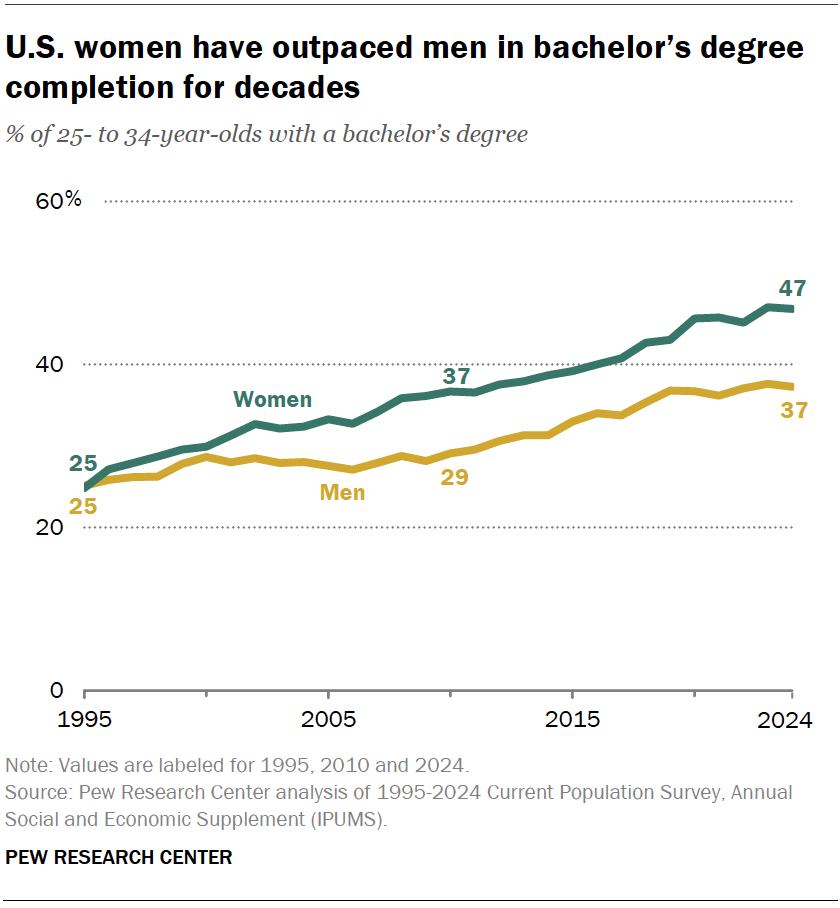The feminization of college

This is a big topic, and this post is just a very brief reference to it, featuring a few striking statistics.
When I was an undergraduate in the early 1980s, the percentage of men and women undergraduates at four-year colleges was identical. This has been shifting gradually, to the point where now only about 42% of undergraduates at four-year colleges are men. In addition, women have higher rates of degree completion, which is resulting in this trend:

25-34 year old women are now 27% more likely to have a four-year degree than men in the same age cohort, and the trend is only getting more pronounced.
We’re seeing the same thing in law school. When I took Torts as a first-year law student at the University of Michigan in 1987, my professor was a young woman — she was about 40 — who also happened to be the first woman ever hired onto the tenure track at Michigan Law School. In the mid-1960s, 95% of law students were men. This fall, 41% of first-year law students were men.
There’s been a lot of discussion, naturally, about why this is happening, but one potential factor that doesn’t seem to get much attention is what sociologists call “feminization” — that is, a shift in cultural assumptions that leads to certain activities, professions, etc., getting coded as essentially female rather than male. Another thing that seems under-appreciated in these discussions is the possibility and often the reality of a tipping point phenomenon. That is, when the percentage of women in a setting hits a certain point — often around 60% apparently — men start fleeing that setting because the setting has been feminized.
Given the percentages quoted above, a very live question is to what extent higher education in general is potentially on the verge of getting feminized in this sort of way. The political implications of such a thing are pretty profound, given that there’s already a very strong left/right divide in the USA driven by both gender and levels of education. Those two factors, in other words, could well become increasingly self-reinforcing, with the left increasingly coded as female, and the right as male.
That fascism is a virulently patriarchal and misogynistic historical phenomenon is not, in this context, anything like a coincidence.


